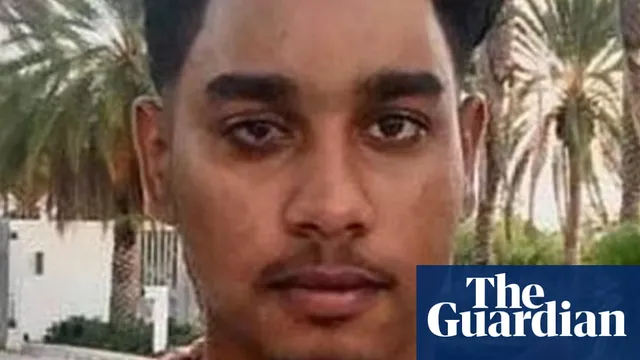
Machete Attack in Wolverhampton Claims Teen Life
2024-09-27 13:19- Shawn Seesahai was attacked and killed by two 12-year-old boys in Wolverhampton while waiting with a friend.
- The boys were influenced by older individuals in their community, leading to their involvement in violent behavior.
- Shawn's family is heartbroken and dissatisfied with the justice system, believing the sentence does not reflect the severity of the crime.
Express your sentiment!
Insights
Shawn Seesahai, a 19-year-old from Anguilla, was brutally murdered in Wolverhampton on November 13, 2022, by two boys aged 12, who attacked him with a machete. The incident occurred after a confrontation over a park bench, during which Shawn was punched, kicked, and ultimately fatally wounded. His family, devastated by the loss, expressed their anguish over his last moments and the senseless nature of the attack. They have struggled emotionally and financially since the tragedy, having spent their life savings to repatriate his body and attend the trial in the UK. The court proceedings revealed that the attackers had been groomed and exploited by older individuals in their community, leading them to carry weapons. Despite the horrific nature of the crime, the boys received a sentence of 17 years, which has left Shawn's family feeling dissatisfied with the justice system. They believe the punishment does not adequately reflect the severity of the crime and fear that the young killers will still have a chance at life upon their release. The trial highlighted the broader issues of youth violence and the influence of gang culture, as well as the need for stronger consequences for such actions. The judge acknowledged the shocking nature of the attack and the lasting impact it would have on both the victim's family and the perpetrators. The case has sparked discussions about the effectiveness of the current legal framework in dealing with young offenders. Shawn's family continues to grapple with their grief, haunted by the memory of his final moments and the fear he must have felt. They hope that by sharing their story, they can raise awareness about the dangers of youth violence and the importance of addressing the root causes of such behavior.
Contexts
In recent years, the UK has witnessed a troubling rise in youth violence and gang culture, prompting urgent discussions among scholars and policymakers alike. The emergence of street gangs has become a significant concern, particularly in England and Wales, where the years 2018-19 marked a watershed period for street violence. Despite initial resistance from UK scholars to label these groups as 'gangs,' overwhelming empirical evidence has emerged, highlighting the reality and growth of street gangs in various regions. This shift in understanding has sparked a renewed focus on the need for effective strategies to combat this escalating issue. The UK government's 'Serious Violence Strategy' has introduced a public health approach to violence reduction, drawing inspiration from Glasgow's successful initiatives in tackling street gangs and knife crime. Glasgow's transitional journey has become a focal point for researchers and policymakers, showcasing the importance of addressing the root causes of violence rather than relying solely on enforcement. This approach emphasizes early intervention and prevention, aiming to change the life stories of young people who might otherwise fall into cycles of violence and re-offending. As the debate continues, the recognition of the need for a comprehensive strategy is becoming increasingly clear. The government has committed to delivering existing early intervention programs, which research indicates are the most cost-effective means of reducing violence in the long term. Additionally, measures such as extending gang injunctions to younger individuals reflect a proactive stance in addressing the complexities of youth violence. Ultimately, the challenge of youth violence and gang culture in the UK requires a multifaceted response that combines enforcement with community engagement and support. By understanding the social dynamics at play and investing in preventive measures, there is hope for a future where young people are empowered to break free from the cycle of violence and build safer communities.